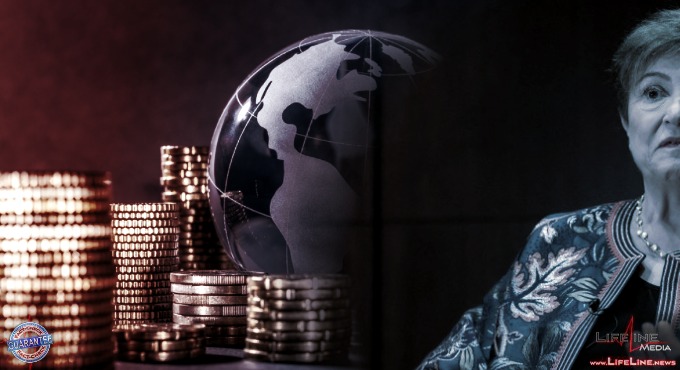Brace for Impact: How Rising Trade Barriers Could Shatter Economic Hopes in 2025

FACT-CHECK GUARANTEE
Political Tilt
& Emotional Tone
The article presents a balanced economic analysis without favoring any political ideology, focusing on global economic challenges and policy recommendations.
Generated using artificial intelligence.
The tone is slightly negative, emphasizing economic difficulties and uncertainties but without overt anger or despair.
Generated using artificial intelligence.
Updated:
Read
The International Monetary Fund rarely makes headlines. This time, however, its warning is impossible to ignore: the global economy is losing steam. After years of sluggish progress, financial growth is faltering as 2025 approaches.
It gets worse:
Trade barriers are rising. Government policies are shifting unpredictably. Uncertainty is spreading rapidly, and the effects are reaching families, workers, and businesses around the world.
The latest IMF forecast paints a sobering picture. Global growth is expected to inch up to just 2.8% next year — a slight improvement after several disappointing periods. The causes are clear: tariffs are making a comeback.
The U.S., China, and Europe are all raising trade barriers to levels not seen in decades. This escalation threatens the very system that once connected global markets. Trust between nations is eroding as countries turn inward.
The impact is already visible. Manufacturers are holding back on investments, and supply chains remain tangled. In countries that depend on exports, production lines are stalling.
Emerging markets are feeling the pain most acutely. These economies rely on selling goods abroad to create jobs and drive growth. When trade slows, they are often left behind.
Policy Responses and the Path Forward
Focusing on the United States, the IMF does not predict a recession next year. Still, optimism is fading. The U.S. growth rate is set to fall to 1.8%—a full point below earlier expectations.
New tariffs and political disputes have made businesses cautious. Many companies are delaying investments or cutting back on hiring. For American households, this means tighter budgets as higher costs are passed along or spending is reduced elsewhere.
Even lower gas prices offer little relief; they signal weak global demand and less investment in domestic energy. The benefits for consumers are limited.
Emerging economies face even greater challenges. Sub-Saharan Africa saw 4% growth this year, but that momentum is likely to fade as exports decline and commodity prices weaken.
Egypt’s outlook has also worsened. Its economy is expected to grow only 3.6% next year, with little sign of improvement ahead. The message is clear: when major economies turn to protectionism, poorer nations pay the highest price.
All of this comes amid historic uncertainty. Trade policies shift without warning, interest rates remain volatile, and new geopolitical risks emerge almost weekly.
Markets have responded with sharp swings, making it harder for businesses to plan or invest. The IMF has cut its global growth forecast by nearly a full percentage point in just four months — a sign of how quickly risks can escalate.
What should governments do now? The IMF urges a balanced approach: fight inflation while supporting growth, rebuild public finances where possible, and reform policies to increase workforce participation by women and older adults.
One controversial suggestion is to integrate migrants and refugees into labor forces to address worker shortages. This proposal has sparked debate about its impact on wages and local jobs.
Where does this leave the world economy? A global recession is not imminent, but risks remain high for both developed and emerging markets. Policymakers must prepare for slower growth while avoiding actions that could further restrict free enterprise.
The path forward requires renewed investment, stronger trade relationships based on national needs — not just politics — and practical steps to rebuild trust between governments and citizens.
Ultimately, the focus must remain on what matters most: secure jobs, stable prices, and leadership that puts everyday people first — not just headlines or international pressure.

Join the discussion!
Be the FIRST to comment on ‘IMF SOUNDS Alarm: Deepening Uncertainty Rocks Global Economy as Trade Barriers Rise’